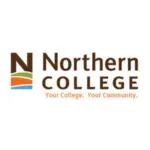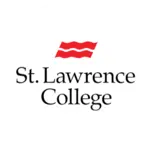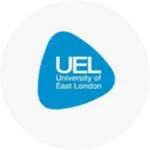Study in Denmark

Overview
Denmark has a top-notch educational system renowned for its intellectual excellence, creative teaching strategies, and welcoming environment for students. With internationally renowned universities and a strong emphasis on sustainability and research, Denmark draws students from all over the world. English-taught programs are widely available, making it easier for overseas students to adjust and succeed. While pursuing your academic objectives in one of Europe’s most forward-thinking nations, take advantage of a high standard of living, a secure environment, and a dynamic cultural experience.
Why Study in Canada?
World-class education
Canada offers globally recognized degrees and diplomas, with top-ranking universities known for academic excellence and research opportunities.
Safe & welcoming
Canada is known for its low crime rate and inclusive society, creating a safe and friendly environment for international students.
Multicultural society
Canada embraces diversity, with people from all over the world, allowing students to experience various cultures and feel at home.
Research opportunities
Canadian universities emphasize research and innovation, offering students access to cutting-edge facilities and projects across various fields.
Work & PR options
Compared to other popular study destinations, Canada offers quality education at relatively lower tuition fees, making it a cost-effective choice.
Affordable tuition
International students can work part-time during studies and full-time after graduation, with clear pathways to permanent residency through programs like Express Entry.
High living standards
Canada consistently ranks high in quality of life, offering excellent healthcare, infrastructure, and a clean environment for a comfortable student life.
Affordable tuition
From mountains and lakes to forests and coastlines, Canada’s stunning natural beauty offers students endless opportunities for travel and outdoor adventures.
Why Study in Denmark?
Globally ranked top universities
One of the happiest countries in the world
Friendly, open-minded population
Modern and efficient transportation
Many English-taught international programs
QUALIFICATIONS OFFERED
- First Professional Degree
- Diploma
- Associate Degrees
- Applied Degrees
- Bachelor’s Degree
- Master’s Degree
- Doctorate
TEST REQUIREMENT
- TOEFL or IELTS scores as a proof of English proficiency. Depending upon the institution, the score requirements may vary between 80-100 for TOEFL and 6.0 – 7.0 bands in IELTS.
- For MBA admission a good score in GMAT is required.
EDUCATION COST
TUITION COST
- Diploma & Advanced Diploma Courses cost range from CAD$11,000 – CAD$13,000 per year depending on the course.*
- Bachelor’s Degrees cost range from CAD$13,000 – CAd$19,000 per year for most under-graduate degrees*
- Post-graduate Degrees cost ranges from CAD$12,000 and ranges up to CAD$22,000*
* Fees given are of informative nature may vary from university to university
TUITION COST
Approximately CAD 10000 for 1st year.
WORK RIGHTS & STAY BACK POST STUDY
TUITION COST
- Part time work right : Off campus 20 hours per week – 40 hours per week during vacation
- No limit for on campus work
- Upto 3 years stay back for ( 2 years study )or equal to the course duration if it is less than 2 years
INTAKE
- January
- May
- September
Universities















Denmark has one of the most progressive educational systems in Europe, emphasizing creativity, critical thinking, and practical application. Universities and institutions provide a diverse range of English programs, especially at the bachelor’s and master’s levels. The major intakes occur in September. Students benefit from a collaborative learning atmosphere and close linkages between academia and industry, which prepare them for worldwide employment.
International students who wish to study in Denmark must demonstrate competency in either English or Danish, depending on the medium of instruction. A minimum IELTS score of 5.5 or a TOEFL score of 83 (iBT) is typically needed for programs taught in English. Other accepted examinations, such as PTE Academic or Cambridge English, may be accepted by some universities. Danish-taught programs need students to pass a language competency test, such as “Studieprøven” or comparable.
Understanding the Canadian Education System
Canada’s education system provides a varied selection of programs through universities, colleges, and technical institutes, catering to students with a variety of employment goals. An exceptional aspect of the Canadian educational system is its focus on experiential learning, which enables students to obtain practical experience through research partnerships, co-ops, and internships. Additionally, the nation offers overseas students the chance to work both during and after their studies, which lowers the cost of education and focuses on careers. With a reputation for competence, inclusivity, and a solid student support system, Canada remains a popular choice for people seeking a high-quality education and potential employment opportunities.
Canadian universities offer three main intakes for international students: January, May, and September.
Language Requirements
International students need to prove English competence on standardized tests such as the TOEFL or IELTS to study in Canada. Depending on the school, the necessary scores can vary, but generally speaking, they fall between 80 and 100 on the TOEFL and between 6.0 and 7.0 on the IELTS. A competitive GMAT score is frequently needed as part of the admissions process for MBA candidates. Institutions may have particular prerequisites, therefore, students must check the qualifying criteria of their preferred program before applying.
Do you have Questions ?
Find answers to common queries about our services, processes, and policies. If you need further assistance, feel free to reach out.
1. What are the main university intakes in Denmark?
The primary intake for Danish institutions occurs in September, with a limited number of programs accessible in February.
2. Does studying in Denmark require me to speak Danish?
Not always. Many programs are available in English, particularly at the master’s level; however, learning Danish can improve your daily life and work prospects.
3. What language skills are needed to study in Denmark?
An IELTS score of 5.5 or a TOEFL iBT score of 83 is commonly required for English-taught programs. Danish-taught programs require confirmation of Danish fluency.
4. Does Denmark offer free education to foreign students?
Education is free for EU/EEA students, however, non-EU/EEA students must pay tuition fees.
5. Is it possible for foreign students to work while studying in Denmark?
Yes, international students are permitted to work up to 20 hours a week during the academic year and full-time during the summer.
6. Are there scholarships available for overseas students in Denmark?
Yes, various government and university scholarships are available to non-EU/EEA students, and they are frequently awarded based on merit and academic performance.
